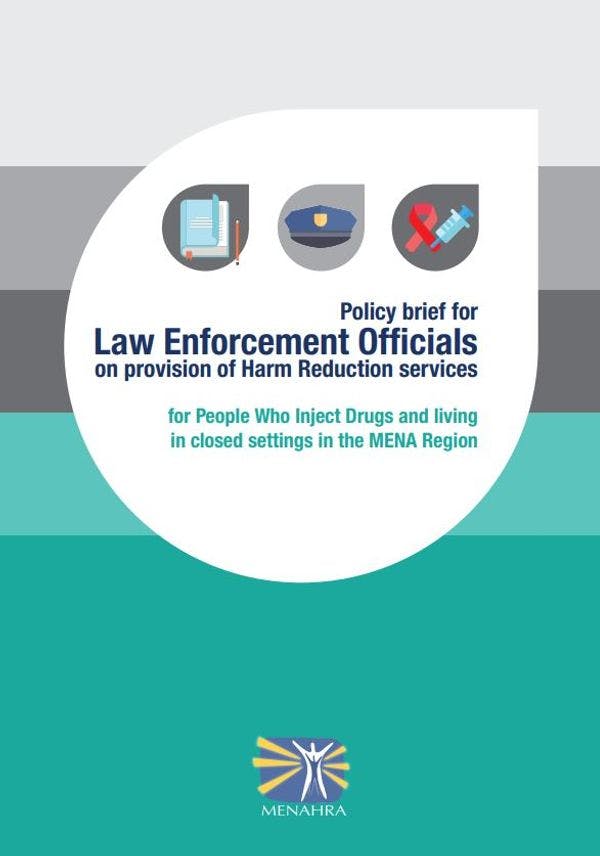Rapport politique à l’attention des responsables de maintien de l'ordre sa prestation de services de réduction des risques
Tant la criminalisation de l’usage de drogues que la forte stigmatisation et la discrimination auxquelles sont exposés les usagers de drogues affectent négativement l’accès aux services de santé pour la population de la région MENA. Pour en savoir plus, en Anglais, veuillez lire les informations ci-dessous.
Drug use is criminalized in all countries of the MENA region, and a large number of PWUD are incarcerated, mostly for drug use, but sometimes even for the mere possession of syringes (UNAIDS, 2016; MENAHRA program data). Moreover, PWUD face high levels of stigma and discrimination in the region (MENA Regional Networks, 2016), which are further reinforced by their criminalization (UNAIDS, 2017a). Both the criminalization of drug use, and high stigma and discrimination faced by PWUD, negatively affect access to health services for this population. A number of studies have reported that this criminalization, manifested by punitive laws, incarceration, and prohibitions on harm reduction services, negatively affects harm reduction efforts. These negative effects include decreases in access to Needle/Syringe Programs, increased risky behaviors of sharing used injecting materials, and an increased HIV burden among PWID (UNAIDS, 2017a). Injecting drug use has been document within prisons in a number of countries in MENA, with unsafe injecting drug use being the primary mode of HIV and HCV transmission among prisoners (HRI, 2017). Furthermore within these settings, OST and ART are often unavailable, discontinued, or severely delayed - further exacerbating negative health consequences.
Police/law enforcement can also be a source of stigma and discrimination. In an Operational Research on PLHIV who inject drugs in 6 countries of the region, 7.7% of participants reported to have faced stigma and discrimination from police (MENAHRA, 2017a).
Of further concern are women who inject drugs, who remain more vulnerable and at higher risk than their male counterparts due to social stigma and gender related factors, whether within prisons or not. These vulnerabilities further hinder access to health services among women (MENAHRA, 2015). Women who inject drugs also have high risks being subjected to sexual violence from police and law enforcement agencies, as has been reported by a study conducted in 2015 (UNAIDS, 2017a).
